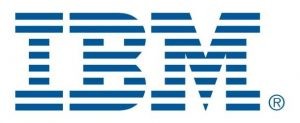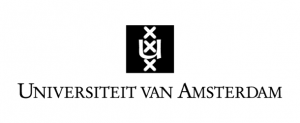Quantum News Briefs December 29: Quantum technologies on fiber will advance AI, enhanced virtual reality & other applications says Qubitekk’s CTO; IBM quantum computer Condor will pass the 1,000-qubit mark in 2023; University Of Amsterdam receives quantum technology grant + MORE

Quantum News Briefs December 29: Quantum technologies on fiber will advance AI, enhanced virtual reality & other applications says Qubitekk’s CTO; IBM quantum computer Condor will pass the 1,000-qubit mark in 2023; University Of Amsterdam receives quantum technology grant + MORE
*****
Quantum technologies on fiber will advance AI, enhanced virtual reality & other applications says Qubitekk’s CTO
Quantum networking, run over fiber infrastructure, can enable advances in technologies, including artificial intelligence and virtual reality, according to an executive at a quantum computing company Qubitekk whose recent speech was covered in Broadband Breakfast and is summarized below by Quantum News Briefs.
Quantum technologies will likely enable a range of highly advanced technologies, including many related to artificial intelligence, said Qubitekk chief technology officer Duncan Earl at a Fiber Broadband Association web event. He suggested quantum could be used to enhanced language translation tools and enhanced virtual reality.
But those quantum networks will need to operate over fiber, according to FBA President Gary Bolton.
Quantum networks, like traditional networks, transmit information between nodes. Instead of sending classical bits, however, quantum networks send quantum bits – or qubits – each of which is comprised of a single photon, Earl said. Unlike the classical binary bit, which is limited to a “1” or a “0”, a qubit has unlimited values.
“The biggest difference is the signal type,” Earl added later in his presentation, comparing traditional fiber and quantum networks. “Instead of sending an optical pulse with billions and billions of photons down the fiber, you’re sending just a single photon and so the detection of that is going to be quite a bit different and the preservation of that information is quite a bit different.” Click here to read original article in-entirety on Broadband Breakfast.
*****
 IBM’s Condor, the world’s first universal quantum computer with more than 1,000 qubits, is set to debut in 2023, according to December 28 IEEE Spectrum article summarized below by Quantum News Briefs.
IBM’s Condor, the world’s first universal quantum computer with more than 1,000 qubits, is set to debut in 2023, according to December 28 IEEE Spectrum article summarized below by Quantum News Briefs.
The year is also expected to see IBM launch Heron, the first of a new flock of modular quantum processors that the company says may help it produce quantum computers with more than 4,000 qubits by 2025.
“A thousand qubits really pushes the envelope in terms of what we can really integrate,” says Jerry Chow, IBM’s director of quantum infrastructure. By separating the wires and other components needed for readout and control onto their own layers, a strategy that began with Eagle, the researchers say they can better protect qubits from disruption and incorporate larger numbers of them. “As we scale upwards, we’re learning design rules like ‘This can go over this; this can’t go over this; this space can be used for this task,’” Chow says.
With only 133 qubits, Heron, the other quantum processor IBM plans for 2023, may seem modest compared with Condor. But IBM says its upgraded architecture and modular design herald a new strategy for developing powerful quantum computers. Whereas Condor uses a fixed-coupling architecture to connect its qubits, Heron will use a tunable-coupling architecture, which adds Josephson junctions between the superconducting loops that carry the qubits. This strategy reduces crosstalk between qubits, boosting processing speed and reducing errors.
IBM’s methodical strategy of “aiming at step-by-step improvements is very reasonable, and it will likely lead to success over the long term,” says Franco Nori, chief scientist at the Theoretical Quantum Physics Laboratory at the Riken research institute in Japan. Click to read IEEE Spectrum article in-entirety.
*****
University Of Amsterdam receives quantum technology grant
 Prof. Wybren Jan Buma of Molecular Photonics at the Van ‘t Hoff Institute for Molecular Sciences will take part in research using the new Dutch quantum supercomputer. Together with Prof. Luuk Visscher of Theoretical Chemistry at VU University, he has just been granted funding through the National Growth Fund programme Quantum Technology, for the quantum simulation of molecular mirror images.
Prof. Wybren Jan Buma of Molecular Photonics at the Van ‘t Hoff Institute for Molecular Sciences will take part in research using the new Dutch quantum supercomputer. Together with Prof. Luuk Visscher of Theoretical Chemistry at VU University, he has just been granted funding through the National Growth Fund programme Quantum Technology, for the quantum simulation of molecular mirror images.
The Dutch quantum supercomputer is located in Delft and is shared with other researchers in the Quantum Delta. The researchers will also use powerful supercomputers elsewhere in the world.
The new Dutch quantum supercomputer will be put to the task of determining the correct molecular mirror image. Just like with people, we have that the mirror image of a molecule looks almost identical but still is crucially different: Imagine putting your right hand in a left-hand glove! For molecules this may imply the difference between an effective drug and a potentially dangerous substance. The researchers in this project aim to develop a combination of measurement and quantum simulations which can unambiguously determine whether we have the desired molecule and not its mirror image.
Visscher leads the modelling work, Buma the experimental validation. As Visscher explains: ”The molecules are subjected to a thorough experimental characterization, which produces a unique ‘molecular signature’. We then use the supercomputer to calculate all possible signatures and compare those with the measured signature, to find the best match”. Click here to read original article in-entirety.
*****
Assurgent Aerospace Technology Pvt Limited and Professor Dr SS Iyengar of Florida International University are collaborating to develop quantum technology for Make in India Intiative
Assurgent is a startup established in November 2022 to develop cutting-edge technologies, including quantum technology. This technology is rapidly growing and is seen as the future of deep tech. Assurgent Aerospace is collaborating with Dr. SS Iyengar, a distinguished professor at Florida International University and National Florida State University, to develop quantum technology in India as part of the Make in India initiative.
The Indian government has allocated a budget of 8000 Crore for quantum research in recognition of the importance of this technology. Assurgent and Dr. Iyengar plan to use their expertise and resources to make significant contributions to the field of quantum computing, including improving military capabilities and advancing civilian applications.
In terms of quantum technology, (https://www.assurgentaerospace.com) Assurgent and Dr Iyengar are focusing on several specific areas, including quantum forensics, quantum sensing and communication, and quantum underwater and satellite communication. These areas have the potential to significantly improve existing technologies and capabilities in a variety of fields. Click to read original announcement.
*****
Sandra K. Helsel, Ph.D. has been researching and reporting on frontier technologies since 1990. She has her Ph.D. from the University of Arizona.



















